Search Images
Browse Content (p. 1242)
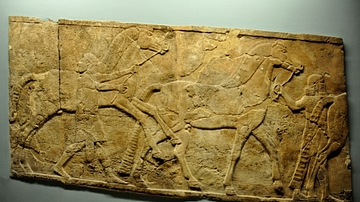
Image
Assyrian Horses & Grooms
This gypsum wall panel relief depicts horses and grooms leaving Sennacherib's palace. Neo-Assyrian Period, reign of Sennacherib, 700-692 BCE. From Room L1 (north), the South-West Palace at Nineveh (Kouyunjik), Northern Mesopotamia, modern-day...
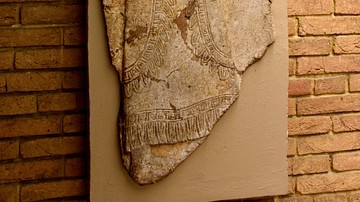
Image
Tribute-Bearer from Syria or Turkey
This is one of a long procession of tribute bearers seen arriving from modern-day Syria or Turkey, on the western fringes of the Assyrian Empire. Neo-Assyrian Period, reign of Sargon II, 710-705 BCE. From Room X of the Royal Palace at Khorsabad...
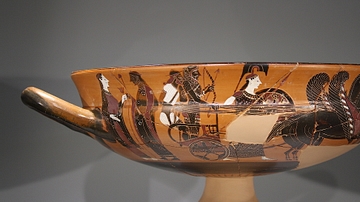
Image
Hercules in Chariot
A black-figure kylix (drinking cup) depicting Hercules being driven in a chariot by Hermes. Athena is to the right. Tarentum, southern Italy, 550-520 BCE. (National Archaeological Museum, Taranto, Italy)
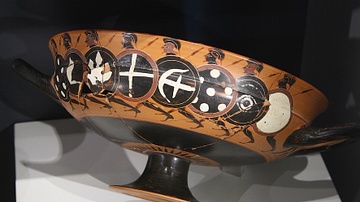
Image
Kylix with Black-Figure Hoplites
A black-figure kylix (drinking cup) with Greek hoplite warriors. Tarentum, 550-520 BCE.
(National Archaeological Museum, Taranto, Italy)
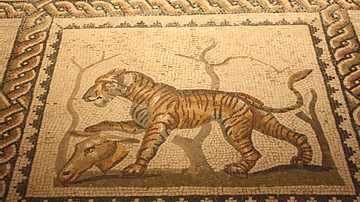
Image
Tiger Mosaic, Tarentum
A panel from a larger floor mosaic depicting a hunting tiger, Tarentum, southern Italy, Late 2nd, early 3rd century CE. (National Archaeological Museum of Taranto, Italy)
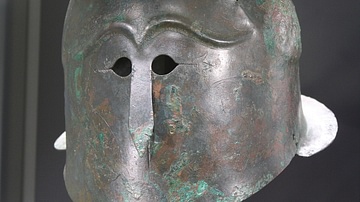
Image
Crested Bronze Helmet, Rutigliano
A crested bronze helmet, Rutigliano (Bari), southern Italy. 430-400 BCE. (National Archaeological Museum of Taranto, Italy)
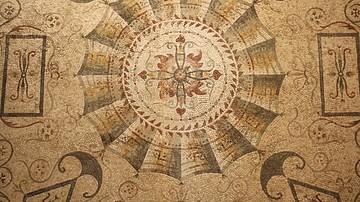
Image
Geometrical Mosaic, Tarentum
A Roman mosaic flooring with geometrical designs, Tarentum, southern Italy. 2nd century CE. (National Archaeological Museum of Taranto, Italy)
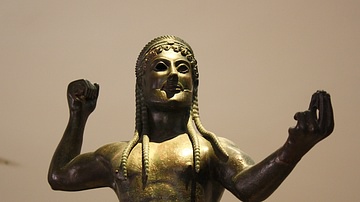
Image
Bronze Zeus, Tarentum
A bronze statue of Zeus, Tarentum, southern Italy c. 530 BCE. (National Archaeological Museum of Tarento, Italy)
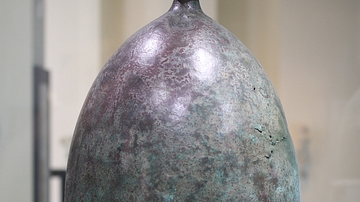
Image
Bronze Helmet, Tarentum
A bronze helmet with cheek-pieces. 3rd century BCE, Tarentum, southern Italy. (National Archaeological Museum of Taranto, Italy)
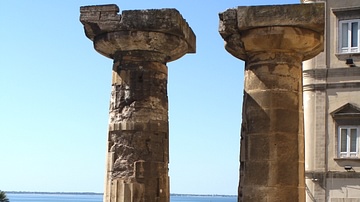
Image
Archaic Columns, Tarentum
Two columns, all that remains of an Archaic temple dedicated to Poseidon at Tarentum, southern Italy.